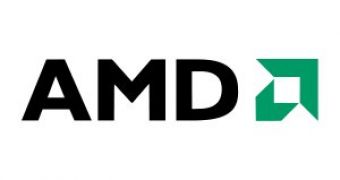Heterogeneous computing is something that Advanced Micro Devices has been advocating for a while, and since OpenCL is seen as the main means of drawing closer to such an IT industry, the outfit came up with the OpenCL University Kit.
OpenCL, right now, is the only non-proprietary industry standard available for heterogeneous computing.
Basically, OpenCl should let developers create new applications for vivid computer experiences that make the best of both the CPU and GPU.
Unfortunately, since it is a relatively new one, OpenCL programming isn't exactly something that many people are versed in.
To remedy this, the Sunnyvale,California-based outfit developed the aforementioned OpenCL University Kit, which consists of a set of materials that any university can use to teach said type of programming language.
“Teaching students to effectively leverage the OpenCL standard involves all the intricacies of parallel programming plus support for a new class of heterogeneous computing devices built on a variety of hardware technologies,” said David Kaeli, professor and associate dean of undergraduate programs, Northeastern University College of Engineering.
“The OpenCL University Kit introduced by AMD is an easy tool to enable educators to quickly introduce OpenCL learning into their curriculum, helping them strike a balance between teaching syntax and higher level architectural issues.”
13 lecture series are available, complete with instructor and speaker notes, plus code examples.
What's more, students need only have a basic knowledge of C/C++ programming in order to understand the course materials.
“As a former professor at Washington University in St. Louis, I firmly believe that the university setting is a vital environment to cultivate the best and brightest minds and set them on a path to succeed,” said Manju Hegde, corporate vice president, AMD Fusion Experience Program.
“By ensuring that an industry standard like OpenCL is a central element of the education process, we are helping to put the PC application ecosystem in good hands to take full advantage of a heterogeneous computing future.”

 14 DAY TRIAL //
14 DAY TRIAL //